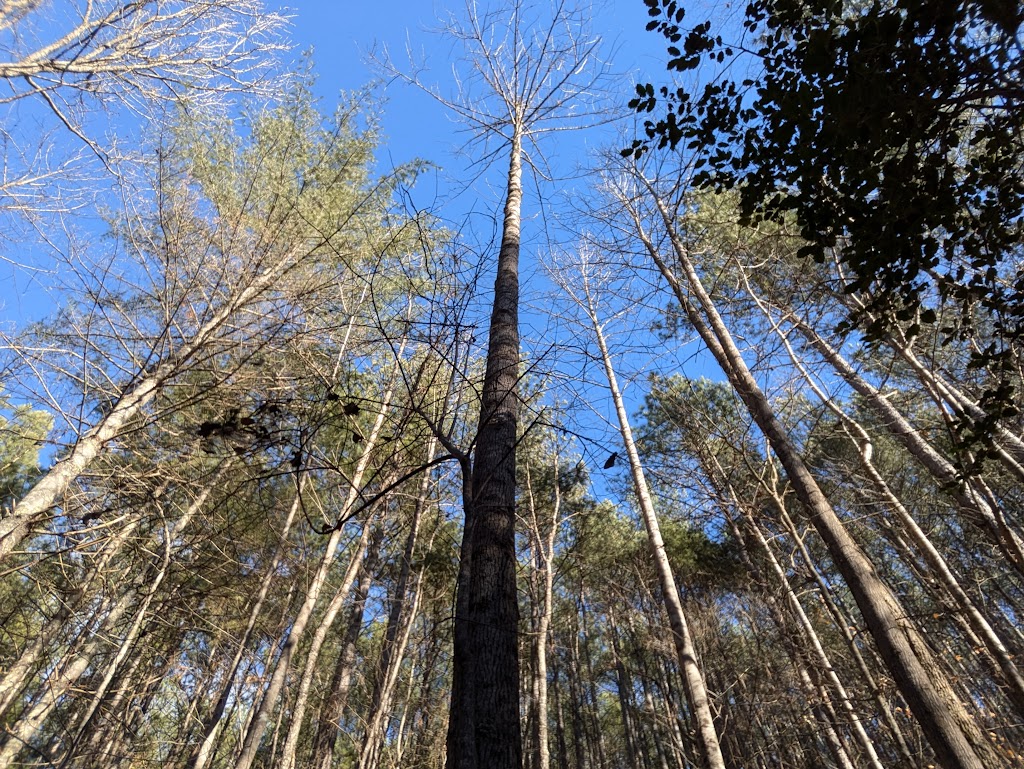I practice the tradition of doing something New Year’s day that sets the tone for the year: I always go hiking. This year I hiked at my local park, Lakeside, with my Rottweiler mix Losi, and followed Bobcat Way, then Shade Seeker, and completed the circle by finishing on the Outer Loop. Though the parking lot was full, I only saw a couple of people, so we were mostly alone in the winter-naked woods. I found myself worrying about how I don’t make enough time for my creative life (even though I just managed a blog a day about Tarot and midwinter for 24 days straight!). But as I walked in the woods and my dog sniffed the myriad aromas I will never know, I realized I was stricken with the suffering Alexandria Peary describes in Prolific Moment: fear of verbal emptiness.
I don’t know if a believer in writer’s block would call what I’ve been experiencing writer’s block (I don’t think we actually get writer’s block as we typically describe it), or maybe it could be called impostor syndrome, but whatever name it can be ascribed, I knew I had come face-to-face with emptiness. And I was being controlled by it, suffering from it, because I didn’t know what to do with it. How can nothing cause suffering? And yet, what do we do with nothing, when we’re so used to mindless filling and frenetic doing, when we habitually act out rituals of accumulation? (see MacEowen The Mist-Filled Path). I have held this fear since finishing my MFA, that I am wasting what I’ve learned and not doing enough, even though I’ve continued to learn so much by teaching college composition, have two poetry manuscripts drafted, and my creative thesis/first book of poems Wolfcraft won an award and will be published this year. I never recognize what I do as enough. And I allow my thoughts to so easily be influenced by what others are saying and doing, such that I believe I’m supposed to do exactly what they are doing and if I’m not, it isn’t enough.
Something I am deep into yet am afraid to face is the idea that we follow our own paths. It’s a form of emptiness. This isn’t about taking the path less traveled. It’s about making choices for ourselves, from ourselves. We are our own guides. It’s Carl Jung’s idea of individuation, not to become an individual, but to become ourselves with community. When we make decisions for ourselves we create a more healthy environment for those around us, as well as ourselves.
Out of the emptiness emerges something soft, intuitive, when I recognize it as such. The forest always teaches me something. And as I look back at last year, the year 2024, seeking to integrate my experiences into my present, The Forest Maiden, a Finnish haltia or spirit, teaches me how what I have, what I am, and what I do, are enough (see Susanna Salo’s Mythologia Fennica Tarot deck https://www.simonandschuster.com/books/Mythologia-Fennica-Tarot/Susanna-Salo/Rockpool-Tarot/9781922786265 )
My past holds a community I’ve slowly stepped away from this year, yet still have a foot in. A community that I love and that loves me, but love changes. Love can mean letting go. And when we let go, we create space for something new.
Here’s where I can pause though.
Usually after completing something I follow the frenetic ritual of accumulation: I start something new without integrating what I just completed. It’s so difficult to face the emptiness after letting go. And I think of how the earth fills in her empty spaces with something, grass, kudzu vines, saplings, flowers…whatever seeds are floating about and available. But in this pause, I want to make what I fill this new space with intentional. I don’t want to fill it with just anything, something that will dominate my garden, turn it into a monocultural desert; I don’t want to allow in a lukha, a “sort of curse” in Finnish myth (Susanna Salo 76). I want the seed of a native plant, something that integrates well with what I already have intentionally planted. A garden of plants that support each other and share nutrients. It can have unabashed love, like how a sunflower seeks the sun, it can be passionate and full of dreams. A garden that knows it enters into an emptiness and that, without the emptiness, it could not be, and so is integrated with that emptiness, is the emptiness.
For now, though, I am the winter-naked forest and seek to dwell in the empty space between.


